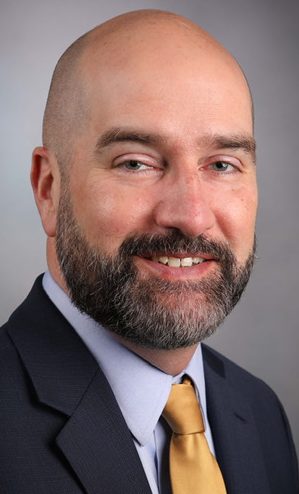JEFFERSON CITY – A bill moving through the Missouri General Assembly, dubbed The Missouri Equality Act, represents a grave threat to Missouri churches and faith institutions, legal experts say.
Opponents of the measure gave it its name because of its likeness to the radical Equality Act moving through the U.S. Congress that would threaten the religious freedom of Americans.
The Missouri Equality Act includes special protections for alleged discrimination in housing and employment against homosexual and transgendered people. The bill contains no protection for religious freedom and would nullify the existing Missouri Religious Freedom Restoration Act.
Because the bill would include public accommodations, its impact would be massive. Hiring and housing at faith-based institutions like The Missouri Baptist Children’s Home, The Baptist Home and the three Missouri Baptist Convention-affiliated universities could all be forced to comply or else lose state licensing and federal student grant money. It will attempt to force the MBCH to hand over foster care children to homosexuals and transgendered people. It will also force agencies to allow homosexuals and transgenders to adopt children.
Another area of great concern would be public accommodation. It could force children and women to share bathrooms and locker rooms with transgendered people of the opposite sex.
The future of the Missouri Equality Act is in the hands of the Republican Party, which has super majorities in both the Missouri House of Representatives and the Missouri Senate. GOP leadership has been silent on the proposed legislation; however, the state Republican Party platform is not. That document expresses unqualified support for the traditional family and makes no mention of support for homosexuality or transgenderism.
Yet earlier this month, nine Republicans voted with about 45 Democrats in supporting the homosexual legislation.
How did this happen?
For the first time in more than a decade a small group of homosexual members of the Missouri House of Representatives got about 50 other members – including the nine Republicans – in signing a rarely used discharge petition. That expedited the legislation by bypassing the House Committee on Children and Families and sending the measure to the House Calendar where the Majority Floor Leader, Dean Plocher, R-St. Louis, will decide whether to call it up for floor debate and a vote before the full House. Plocher has 10 days – from April 20 when it was placed on the calendar – to decide whether or not to call the bill up for a vote. If he does not call it up, it dies, though it could resurface through other legislative maneuvers.
The nine Republicans who voted with the homosexuals and Democrats against Missouri churches were:
• Chris Sander, who represents Lafayette, Cass and Jackson counties
• Mike Stephens of Bolivar, who represents Polk and Cedar counties
• Shamed Dogan, who represents Ballwin, Ellisville, Fenton and Wildwood
• Bill Falkner, of St. Joseph who represents parts of Buchanan County
• Andrew McDaniel, who represents parts of Dunklin and Pemiscot counties
• Shane Roden of Cedar Hill, who represents part of Jefferson County
• Adam Schwadron, who represents parts of St. Charles County
• Phil Christofanelli, a homosexual who represents parts of St. Charles County, including part of St. Peters\

Hannegan
• Bill sponsor Tom Hannegan, a homosexual who represents part of St. Charles County, including northern St. Charles.
Meanwhile, in the Senate, homosexual Sen. Greg Razer, D-Kansas City, offered a similar amendment to an unrelated bill. His action met swift resistance from conservative Sens. Bob Onder, R-Lake St. Louis; Mike Moon, R-Ash Grove; Rick Brattin, R-Belton; Cindy O’Laughlin, R-Shelbina; and Bill Eigle, R-St. Charles. The amendment was ultimately defeated, 16-15, with five Republicans voting with homosexuals against Missouri churches.
Those five senators were:
• Justin Brown represents Camden, Pulaski, Phelps and Crawford counties.
•Lincoln Hough represents downtown Springfield (Greene County).
• Caleb Rowden represents Boone and Cooper counties.
• Dan Hegeman represents Andrew, Atchison, Clinton, Davies, Dekalb, Gentry, Grundy, Harrison, Holt, Mercer, Nodaway, Putnam, Sullivan, Worth and part of Clay counties.

Razer
• Jason Bean represents Butler, Carter, Dunklin, Mississippi, New Madrid and Pemiscot counties.
Since the measure introduced by Razer was defeated, it has been set aside, but could resurface at any time for a vote by the full Senate – provided there is no filibuster.
MBC legal counsel along with the MBC Public Policy Advisor and The Pathway will continue to monitor the legislative process closely.

